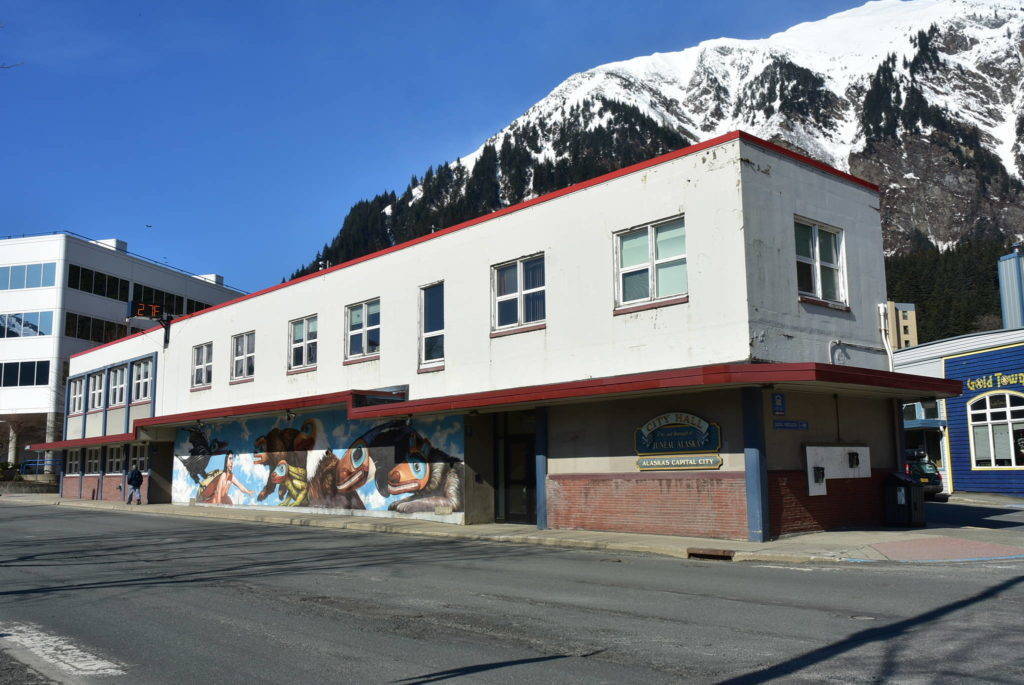At a special meeting Wednesday evening, City and Borough of Juneau Assembly members unanimously voted to extend the city’s current COVID-19 mitigation plans until Oct. 31, rather than letting them expire on July 31. In addition, they voted to drop the fine associated with mitigation violations.
The adopted measures are mostly as they have been since the city adopted the tiered approach in the spring, with proposed mitigation measures varying based on the level of disease spread and the percentage of the population that’s vaccinated.
City assembly to revisit mitigation measures
However, compared to earlier iterations, some restrictions have been lightened to reflect the community’s high vaccination rate. In addition, the measures now recommend masking for fully vaccinated people when the community risk level is moderate, as it is currently. This recommendation follows guidance issued earlier this week by the federal Centers for Disease Control and Prevention. The updated ordinance and mitigation strategies are available on the city clerk’s website at juneau.org/clerk/adopted-legislation.
Mayor Beth Weldon said based on questions she had been asked, she understood that confusion existed about what the assembly was considering.
“We are not trying to hunker down or close business,” she said.
Mila Cosgrove, incident commander for the Emergency Operations Center and deputy city manager, echoed the mayor’s sentiment.
“The goal is not to shut businesses or impair economic activities. The goal is to stay as open as possible,” Cosgrove said.
Making the case
Before voting, Cosgrove briefed the assembly on the city’s latest COVID numbers. She outlined the reasons the EOC is concerned about the situation, citing the city’s 6% positivity rate on July 26—a number that has eased slightly since.
“These are some of the highest numbers we’ve had and it’s pushed our case count into a very high level,” Cosgrove told the assembly. “We had 150 total cases over 14 days. That’s the biggest number we’ve had yet.”
Cosgrove said multiple factors are driving the case count, including two clusters. One cluster includes an office with nine positive cases and a second cluster is linked to a restaurant. She said that cases are primarily among residents, not visitors.
“We don’t have much case positivity among cruise passengers. That’s not a factor driving the increase,” she said.
Cosgrove said that the city sees high amounts of secondary spread, which happens when family members catch COVID-19 from one another. She noted that community spread is high among young adults and that many have several social contacts, which makes contact tracing more challenging. She also said that case rates in children are climbing.
Incoming deputy city manager, Robert Barr, told the assembly that the delta variant is now the most prominent variant in Alaska and that it’s more transmissible and has a faster incubation period than the initial COVID strain. Barr has served as the planning section chief of the EOC since the outset of the pandemic in 2020.
“In the absence of mitigations, we would expect our numbers to climb,” Barr said.
Cosgrove said that the city’s testing and vaccine operations are stable and running well. However, she noted that quarantine and isolation space are emerging concerns. In addition, she said that the region’s hospitals have severe system restrictions, which can lead to trouble when patients need to be transported via medevac to other facilities.
“There are people with acute illnesses that can’t get needed care,” she said.
Cosgrove said that Bartlett Regional Hospital currently has two COVID-positive patients.
“They are not in danger but they are concerned,” she said, referring to the hospital’s status.
Officials urge health diligence as COVID cases rise
Public weighs in
Several residents called into the meeting—some supporting an extension, but many urging the assembly to drop all mitigation measures.
“I encourage you to keep whatever tools you can to control what might be a potential, very bad event. It would be a shame to lose whatever we gained as delta increases. Whatever tools you can have in place, I encourage you to do that,” said Bruce Simonson, who said he was calling from his home in downtown Juneau.
The majority of the callers expressed a different view.
“We are exhausted with mask mandates and all these other mandates,” said Mindy Shoemake, who, along with her husband, Robert, came to the meeting to testify in person. “It’s not in your power or your right.” She said that in her view, the City Assembly was “becoming tyrannical.”
Dropping the fines
Dan DeBartolo called to ask the assembly to consider dropping the $25 fine that could be assessed for not following mitigation rules.
“I appreciate the efforts to keep us safe. With a community that’s got a strong vaccination rate, maybe being punitive is not the right thing to do as we evolve into the next step of the pandemic,” he said.
City assembly member Carole Triem offered the amendment to remove the fine — which she did not think had ever been levied — and the assembly members agreed.
In an interview after the meeting, assembly members said they had received about 20 emails leading up to the meeting, expressing a wide variety of perspectives.
“Everyone is tired. It’s been a long time,” said Greg Smith, assembly member. Smith said that he was not surprised by the volume of comments.
• Contact reporter Dana Zigmund at dana.zigmund@juneauempire.com or 907-308-4891.

